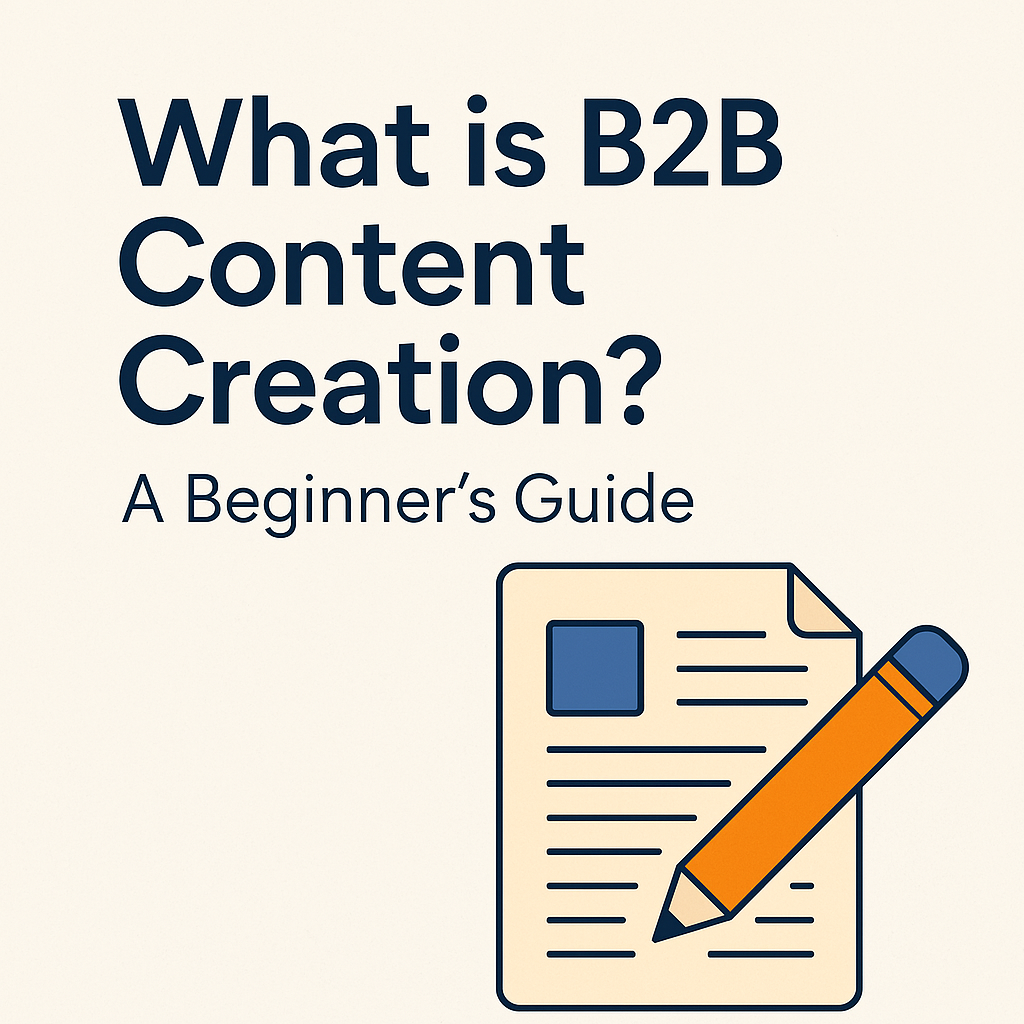What is B2B Content Creation? A Beginner’s Guide
B2B content creation isn’t just about filling up a blog with articles—it’s a strategic approach that builds authority, generates high-quality leads, and fuels long-term business growth. In an environment where decision-makers conduct extensive research before making a purchase, well-crafted content can be the difference between being a trusted resource and being ignored.
If you’re new to B2B content creation, this guide will break down what it is, why it matters, and the best practices to maximize its effectiveness.
What is B2B Content Creation?
B2B content creation is the process of developing strategic, high-value content to attract, educate, and convert business clients. Unlike B2C content, which often appeals to emotions and impulse buying, B2B content is heavily focused on data, industry expertise, and long-term value.
It’s about answering complex questions, providing in-depth analysis, and helping businesses make informed decisions. Successful B2B content marketing includes:
- Website content creation: High-converting landing pages, service descriptions, and case studies.
- Blog content & industry reports: Thought leadership articles that establish credibility.
- SEO content creation: Optimized content that ranks for relevant search queries.
- Webinars & video marketing: Engaging formats that position your brand as an industry leader.
- Email & LinkedIn content: Nurturing leads through insightful updates and reports.
The goal? To drive organic traffic, build trust, and move prospects further down the sales funnel.
Why is Content Creation Important for B2B Businesses?
The digital landscape is more competitive than ever. If your company isn’t consistently producing high-quality content, you’re losing potential customers to competitors who are. Here’s why a B2B content strategy is non-negotiable.
1. Establishes Thought Leadership and Trust
B2B buyers don’t make impulsive decisions. They prioritize self-directed research via digital channels and multiple sources before engaging sales reps. If your content consistently provides industry insights, actionable strategies, and expert analysis, you become a go-to resource in your niche.
Example: A SaaS company publishing detailed guides on “Enterprise AI Implementation” is far more credible than one that just lists product features.
2. Supports the B2B Buyer Journey
B2B sales cycles are long and require multiple touchpoints. A solid content strategy ensures you provide the right information at each stage:
- Awareness: Blog posts, guides, and social content introducing a challenge or trend.
- Consideration: Whitepapers, case studies, and webinars providing in-depth analysis.
- Decision: Product demos, pricing comparisons, and customer testimonials to drive action.
3. Enhances SEO and Organic Visibility
Search engine optimization (SEO content creation) ensures that your content ranks when prospects search for industry-related terms. Ranking for high-intent keywords brings inbound traffic—prospects already looking for solutions.
Example: If a cloud security firm ranks for “best enterprise cloud security solutions,” they attract high-quality leads actively searching for their services.
4. Converts Leads into Clients
A strong content funnel keeps leads engaged and nurtured. Instead of hard-selling, B2B content educates and guides prospects, making them more likely to convert when the time is right.
Data: Businesses that prioritize content marketing generate 67% more leads than those that don’t
Best Tips for B2B Content Creation
To cut through the noise and create content that drives real results, follow these expert-backed strategies.
1. Understand Your Target Audience (And Their Pain Points)
Generic content doesn’t work. Your audience consists of C-suite executives, managers, and technical specialists—each with different concerns. Conduct deep research and create detailed buyer personas that outline:
- Key pain points and industry challenges.
- Preferred content formats (reports, webinars, how-to guides, etc.).
- Search behavior and decision-making process.
Tailor your content to address specific pain points, not just promote your product.
2. Create Data-Driven, Value-Packed Content
B2B buyers are skeptical of marketing fluff. They trust facts, data, and case studies. High-performing content should include:
- Industry research & benchmarks: Reference credible data sources.
- Actionable insights: Provide frameworks, checklists, and step-by-step strategies.
- Case studies: Showcase real-world success stories with measurable outcomes.
3. Optimize for SEO (But Don’t Overdo It)
SEO content creation isn’t just about keywords—it’s about intent. Here’s how to optimize your content for search and conversion:
- Use long-tail keywords naturally (e.g., “B2B website content creation best practices”).
- Optimize title tags, meta descriptions, and headers for clarity.
- Include internal links to relevant resources.
- Make content scannable with subheadings, bullet points, and visuals.
SEO is not about stuffing keywords—it’s about making content discoverable and valuable.
4. Repurpose Content Across Multiple Channels
Maximize reach by repurposing your best-performing content. A blog post can be turned into:
- A LinkedIn post for professional engagement.
- A webinar topic for interactive discussions.
- An infographic for social sharing.
- A newsletter highlight for lead nurturing.
Content distribution is just as important as content creation.
5. Leverage AI and Automation Tools
AI-powered tools like SurferSEO, Jasper, and ChatGPT can enhance your content creation process by:
- Identifying trending topics and keywords.
- Automating research and competitor analysis.
- Generating outlines and content drafts.
However, human expertise remains irreplaceable. AI should assist in content creation, not replace strategic thinking.
Conclusion
B2B content creation is an investment, not an expense. When done strategically, it:
- Positions your brand as an industry authority.
- Increases organic traffic through SEO-driven content.
- Converts qualified leads with educational, value-packed insights.
To dominate in your niche, focus on quality, relevance, and SEO-driven strategies. The businesses that produce valuable, data-driven content will outshine competitors and capture the attention of decision-makers.
Need help optimizing your B2B content strategy? Let 3DM Lens, a digital marketing agency, take care of it. We create high-quality content using smart tools to make sure it reaches the right audience and helps your business grow.


